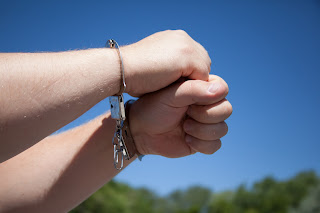Arrested in New York City, Now What Do I Do?
Police officers and other law enforcement officials realize that the people they take into custody will often be fearful and stressed out and they capitalize on those emotions to extract damaging evidence particularly in the form of statements and confessions from the people they arrest.
It is for this reason as well as others that criminal defense lawyers want everyone to keep in mind a number of universal rules for anyone who might be unlucky enough to be arrested. First and foremost, remain calm and submit to the arrest. No one has ever talked their way out of an arrest. Never risk being injured or mistreated by physically resisting arrest. You can only delay the process and put yourself in a worse position.
If you remember nothing else, do not make any statements to the police or other law enforcement. Other than providing your name, contact information and other pedigree information, say nothing. What you may think is helpful or at worst innocuous may harm your case. One of the most valuable rights we have in the United States is the Fifth Amendment right to be free from self-incrimination. In order to cash in on that right remember one thing: DO NOT MAKE ANY STATEMENTS TO LAW ENFORCEMENT.
While you may not be given the opportunity to make phone calls, ask for the opportunity to call your attorney or family. It is important for people to know where you are and that you have been arrested.
In New York City you will be interviewed by a representative of the Criminal Justice Agency (not an arm of law enforcement). Their job is to assess whether you are a good risk to release on your own recognizance. Never discuss the facts of your arrest or case but be sure to give detailed information on your work, family and community ties, including phone numbers of contacts.
If you or your family can retain experienced criminal defense counsel prior to your arraignment before a judge, which generally occurs within 24 hours of your arrest, it is in your best interest to do so. The sooner your criminal defense lawyer is on board, the sooner they can begin to prepare a strong argument for your release, work on your defense, and try to move your papers through the system to get you before a judge at the earliest possible time.
If you are fortunate enough to retain counsel, provide your attorney with as much information as you can, with as much accuracy as you can. An informed attorney is in the best position to help you.
Again, no one wants to be arrested, but how one handles the arrest process can have a huge effect on the outcome of his or her case.
Peter J. Schaffer (718) 585-4444 has been a criminal defense lawyer in New York City since 1987. During that time he has successfully represented over two thousand individuals and businesses in State and Federal Court.
http://www.fedcrimlaw.net
Labels: Criminal Law, Tips


0 Comments:
Post a Comment
<< Home